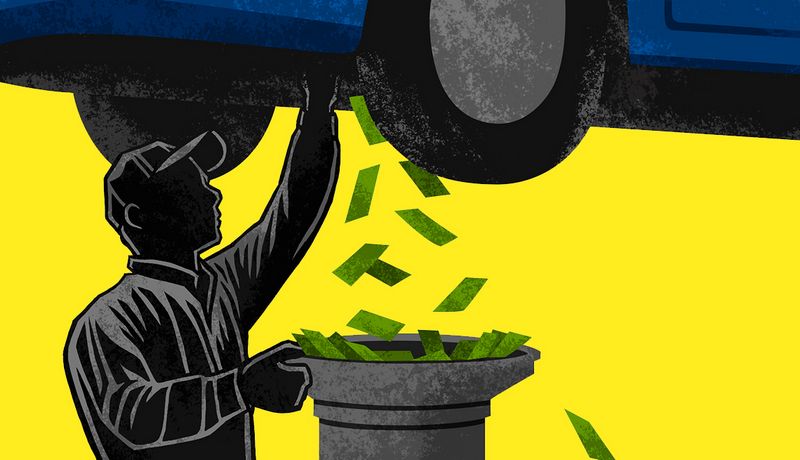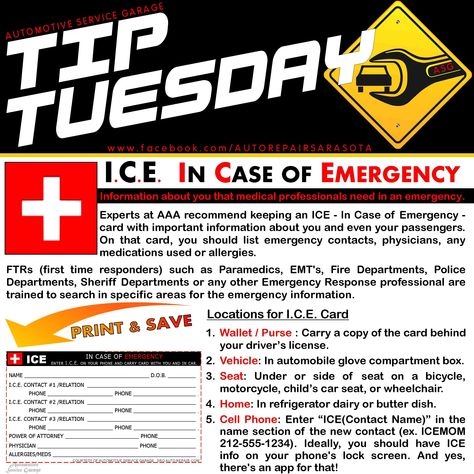
How to Avoid Auto Repair Scams
When it comes to getting your car repaired, it’s important to know how to protect yourself from scams. Unfortunately, there are dishonest mechanics out there who will try to take advantage of unsuspecting drivers. But with these top tips, you can avoid falling victim to auto repair scams.
Firstly, it’s crucial to do your research before taking your car to a mechanic. Look for reputable auto repair shops in your area and read reviews from other customers. This will give you an idea of the quality of their work and whether or not they can be trusted.
Secondly, never be afraid to ask questions. A trustworthy mechanic will be happy to explain the problem with your car and the necessary repairs. If something doesn’t seem right or you don’t understand, ask for clarification. This will not only help you avoid scams, but also ensure that you’re well-informed about your vehicle.
Remember, knowledge is power when it comes to dealing with auto repairs.
Thirdly, be wary of mechanics who pressure you into getting unnecessary repairs or upgrades. If a mechanic insists that certain repairs are urgent or tries to upsell you on unnecessary parts or services, it’s a red flag. Get a second opinion from another mechanic before agreeing to any work.
Lastly, always get a written estimate before any work is done on your car. This will prevent any surprises when it comes time to pay the bill. If a mechanic refuses to provide a written estimate or tries to charge you for work that wasn’t agreed upon, it’s best to go somewhere else.
By following these top tips, you’ll be better equipped to protect yourself from auto repair scams. Remember to do your research, ask questions, be wary of unnecessary repairs, and always get a written estimate. Don’t let dishonest mechanics take advantage of you – take control of your car repairs now!
Researching Local Repair Shops
When it comes to avoiding auto repair scams, one of the most important steps you can take is to thoroughly research local repair shops before choosing one. By doing your homework, you can avoid falling victim to fraudulent practices and ensure that your vehicle is in good hands. Here are some tips on how to research local repair shops:
- Read Reviews: Check online review sites, such as Yelp or Google, for feedback from previous customers. Pay attention to both positive and negative reviews to get a comprehensive understanding of the shop’s reputation.
- Ask for Recommendations: Seek recommendations from friends, family, or coworkers who have had positive experiences at local repair shops. Personal referrals can give you confidence in the shop’s reliability.
- Look for Certifications: Check if the repair shop has any industry certifications, such as Automotive Service Excellence (ASE) or manufacturer-specific certifications. These certifications indicate that the technicians have met certain standards of knowledge and expertise.
- Visit the Shop: Take the time to visit the repair shop in person. Observe the cleanliness and organization of the facility, as well as the demeanor and professionalism of the staff. A well-maintained shop with knowledgeable staff is more likely to provide quality service.
- Get Multiple Estimates: Before committing to a repair shop, obtain estimates from several different shops. This will give you an idea of the average cost for the repair and help you identify any potential scams or overcharging.
By following these steps and staying vigilant, you can choose a reputable repair shop and protect yourself from falling victim to auto repair scams. Remember to trust your instincts and don’t hesitate to seek a second opinion if something doesn’t feel right.
Asking for Recommendations
When it comes to finding a reliable and trustworthy auto repair shop, asking for recommendations is a great way to start. Word-of-mouth referrals from friends, family, and colleagues can provide valuable insights into the best places to take your car for repairs.
Reach out to people you trust who have had recent auto repair work done and ask about their experiences. Inquire about the quality of the repairs, the professionalism of the staff, and the overall satisfaction with the service provided. These firsthand accounts can help you make an informed decision.
Additionally, consider reaching out to local car enthusiasts or online automotive communities. These individuals often have vast knowledge and experience in dealing with auto repairs and can offer valuable suggestions and recommendations for reputable repair shops in your area.
When asking for recommendations, it’s important to keep in mind that everyone’s experience may vary. What works for one person may not necessarily work for another. However, by gathering different opinions and feedback, you can get a better idea of the reputable repair shops in your area.
Key Takeaways:
- Ask friends, family, and colleagues for recommendations on reliable auto repair shops.
- Consider reaching out to local car enthusiasts or online automotive communities for suggestions.
- Keep in mind that personal experiences may vary, so gather multiple opinions and feedback.
By utilizing the power of recommendations, you can increase your chances of finding a trustworthy auto repair shop and avoid unnecessary scams or subpar service. Remember, knowledge is power when it comes to taking care of your car.
Checking for Certifications
When it comes to auto repair, it’s important to know who you can trust. One way to protect yourself and avoid scams is by checking for certifications.
Before you take your car to a shop, ask if the technicians are certified. Certified technicians have completed training and passed exams to demonstrate their knowledge and skills. This certification shows that they have the necessary expertise to properly diagnose and repair your vehicle.
There are different types of certifications to look for, depending on the specific auto issue you are facing. For example, if you need electrical repairs, look for technicians who are certified in automotive electrical systems. If you have transmission problems, seek out technicians who are certified in transmission repairs.
Not only is it important for the technicians to be certified, but the shop itself should also have certifications. Look for shops that are certified by reputable organizations like the National Institute for Automotive Service Excellence (ASE). ASE-certified shops meet rigorous standards for professionalism and expertise.
When you see certifications displayed in a shop, it gives you peace of mind that you are dealing with trained professionals who have the knowledge and skills to handle your car repairs.
Checking for certifications is a crucial step in avoiding auto repair scams. By making sure the technicians and the shop have the necessary certifications, you can trust that your car is in good hands and that you won’t fall victim to unscrupulous practices.
Understanding Repair Estimates
When it comes to auto repairs, it’s important to understand how the repair estimates work. This knowledge will help you avoid unnecessary expenses and ensure that you’re not being scammed by dishonest mechanics.
The first step to understanding repair estimates is to know what they are. An estimate is a written document that outlines the cost of the repairs that your auto needs. It includes the cost of parts, labor charges, and any additional fees or taxes. It’s important to ask for an estimate before any work begins so that you can compare prices and make an informed decision.
One way to avoid scams is to get multiple estimates from different repair shops. This will give you an idea of the average cost and help you determine if a particular shop is trying to overcharge you. However, it’s important to remember that the cheapest estimate isn’t always the best option. Sometimes, a higher price may be justified if the shop has a good reputation and offers high-quality service.
Another important aspect of understanding repair estimates is knowing the difference between a written estimate and a verbal quote. While a verbal quote can give you a rough idea of the cost, it’s always better to have a written estimate. This way, you have something to refer back to and ensure that you’re not surprised by any hidden fees or unexpected charges.
It’s also important to ask for a detailed breakdown of the estimate. This should include the cost of parts and labor, as well as any additional charges, such as diagnostic fees or disposal fees. Having this information in writing will help you better understand what you’re paying for and make sure that you’re not being overcharged.
Finally, it’s crucial to review the estimate carefully and ask questions if something is unclear. Don’t be afraid to ask for clarification or request additional information. A reputable repair shop will be transparent and willing to answer your questions. If a shop seems hesitant or avoids providing detailed information, it may be a red flag indicating that they’re trying to hide something.
By understanding repair estimates and following these tips, you can avoid common scams and protect yourself from dishonest repair shops. Remember to always ask for written estimates, compare prices from multiple shops, and ask questions if something doesn’t seem right. By being proactive, you can ensure that you’re getting fair and honest treatment when it comes to auto repairs.
Getting a Second Opinion
When it comes to auto repairs, it’s important to know that you have options. One of the best ways to avoid being scammed is to get a second opinion. This means consulting with another mechanic or auto repair shop to get a different perspective on the repairs you need.
By getting a second opinion, you not only protect yourself from potential scams, but you also ensure that you’re getting the best possible service at the best possible price. Here’s how to go about getting a second opinion:
1. Research reputable auto repair shops
Start by doing some research to find reputable auto repair shops in your area. Look for ones that have good reviews and ratings from previous customers. This will give you confidence that you’re choosing a trustworthy mechanic.
2. Explain the problem
When you visit the second mechanic, be sure to explain the problem you’re experiencing in detail. This will help them understand what needs to be fixed and give them a clear idea of what repairs should be done.
3. Get a written estimate
Ask the second mechanic to provide you with a written estimate for the repairs. This should include the cost of parts and labor, as well as any additional fees or charges. Having a written estimate will help you compare prices and make an informed decision.
4. Consider the recommendations
Once you have the second opinion, take some time to compare the recommendations from both mechanics. If they’re in agreement, you can be more confident in the repairs that are needed. However, if they differ significantly, it may be worth seeking a third opinion to help you make a final decision.
5. Trust your instincts
Finally, trust your instincts when it comes to choosing the right mechanic. If something doesn’t feel right or if you’re unsure about the repairs being recommended, it’s okay to seek another opinion or get a consultation from a different auto repair shop. Ultimately, you know your car best and should make choices that feel comfortable to you.
By following these steps and getting a second opinion, you can avoid falling victim to auto repair scams and ensure that you’re getting the best service for your car.
Avoiding Upfront Payments
One of the most common scams in the auto repair industry is the demand for upfront payments. To protect yourself from falling victim to this scam, there are a few steps you can take.
First and foremost, never agree to make an upfront payment before any work is done on your vehicle. Legitimate auto repair shops will only bill you for the services they have provided after the work is completed.
Additionally, always ask for a written estimate before any repairs begin. This will help to ensure that you are not being overcharged or hit with surprise fees.
If a repair shop insists on demanding payment in advance, it is a major red flag. Walk away from that business and find another reputable auto repair shop that does not require upfront payments.
By following these tips and being aware of the common scams in the industry, you can protect yourself from becoming a victim of auto repair fraud.
Paying with Credit Card
When it comes to avoiding scams in the auto repair industry, one of the safest ways to pay for your repairs is by using a credit card. Here’s how paying with a credit card can protect you:
- Scam Prevention: Paying with a credit card gives you the ability to dispute any unauthorized charges or fraudulent activity. If you suspect that you’ve been scammed by an auto repair shop, you can contact your credit card company to file a dispute and potentially have the charges reversed. This adds an extra layer of protection and peace of mind.
- Documentation: Using a credit card also provides you with a paper trail or electronic record of your transaction. This can be especially helpful if you need to provide evidence to support your case in case of a dispute or fraud claim.
- Security: Credit cards typically offer additional security features, such as fraud protection and zero-liability policies, which can limit your liability in case your card is stolen or used without your consent.
- Convenience: Paying with a credit card can also be more convenient compared to other payment methods. You won’t need to carry large amounts of cash or worry about making sure you have enough funds in your checking account. Additionally, you may have the option to earn rewards or cashback on your credit card purchases.
In summary, paying with a credit card is a smart and secure choice when it comes to avoiding auto repair scams. It provides protection, documentation, security, and convenience. So the next time you’re getting your car repaired, consider using a credit card as your preferred payment method.
Keeping Records of Repairs

One of the most important ways to avoid falling victim to auto repair scams is to keep detailed records of all repairs and maintenance done on your vehicle.
By keeping records, you can:
- Track the history of your vehicle’s repairs and maintenance.
- Ensure that you are not being charged for unnecessary repairs.
- Have documentation to support any warranty claims or disputes.
Here are some tips for keeping records:
- Keep a file or folder specifically for your vehicle’s records. This can include receipts, invoices, and any other documents related to repairs.
- Record the date, description of the repair or maintenance, the mileage of your vehicle, and the cost of the service.
- Take photos or videos of any visible damage or issues before taking your vehicle in for repairs.
- Ask for itemized invoices that clearly state the parts and labor provided.
- Keep track of any warranties or guarantees provided by the repair shop.
By following these tips, you can protect yourself from potential scams by having a solid record of all repairs and maintenance performed on your vehicle.
Asking for Detailed Explanations
When dealing with auto repairs, it’s essential to ask for detailed explanations. This will help you avoid falling victim to scams and ensure that you understand the repairs your car needs.
One of the most common ways auto repair scams occur is when mechanics give vague explanations about the work required. They may use technical jargon or simply brush off your questions, making it difficult for you to assess the legitimacy of their recommendations.
To protect yourself, always ask for a detailed explanation of the repairs. A reputable mechanic will take the time to explain the issues with your vehicle in a way that you can understand. If they refuse to give clear explanations or seem evasive, it’s a red flag that something may be amiss.
Additionally, ask for a written estimate that outlines the specific repairs and their associated costs. This will help you compare quotes from different mechanics and ensure you’re not being overcharged.
Furthermore, don’t hesitate to ask for clarification if something doesn’t make sense. A trustworthy mechanic will be patient and willing to address any concerns you have.
By asking for detailed explanations, you can avoid falling prey to auto repair scams. It empowers you to make informed decisions about the repairs your car needs and protects you from unnecessary expenses.
Knowing Your Rights
When it comes to auto repairs, it’s important to know your rights as a consumer. By understanding your rights, you can avoid falling victim to scams and ensure that you are treated fairly by repair shops.
Here are some key points to keep in mind:
- Know what you are paying for: Before authorizing any repairs, ask for a detailed estimate and explanation of the work that needs to be done. This will help you avoid paying for unnecessary repairs.
- Get it in writing: Always ask for a written estimate and invoice that clearly states the cost of parts and labor. This will protect you from any surprise charges or unauthorized repairs.
- Understand warranty coverage: If your vehicle is under warranty, make sure you understand what repairs are covered and what is not. A reputable repair shop should be able to provide you with this information.
- Choose a reputable repair shop: Do your research and read reviews before choosing an auto repair shop. Look for a shop that is certified and has a good reputation for honesty and quality work.
- Don’t be afraid to get a second opinion: If you are unsure about a repair recommendation or feel like you are being pressured into unnecessary repairs, don’t hesitate to get a second opinion from another reputable shop.
- Report any issues: If you believe you have been a victim of an auto repair scam, report it to your local consumer protection agency or the Better Business Bureau. By reporting scams, you can help protect others from falling victim.
By knowing your rights and staying informed, you can avoid auto repair scams and ensure that you are getting the quality repairs you need at a fair price.
Being Skeptical of Unsolicited Repairs
When it comes to dealing with auto repair shops, one of the most important tips to remember is to be skeptical of unsolicited repairs. Scammers often prey on unsuspecting car owners by offering unnecessary services or exaggerating the extent of the repairs that need to be done.
So how can you protect yourself from falling victim to these scams? First and foremost, it’s important to educate yourself about your car and its maintenance needs. Take the time to research common problems and their solutions, so that you have a basic understanding of what repairs might actually be necessary.
Next, be wary of any repair shop that contacts you out of the blue, especially if they claim to have noticed a problem with your car. Legitimate repair shops typically don’t make unsolicited calls or send emails offering their services. If you receive such a call or email, it’s best to ignore it or politely decline their services.
Another red flag to watch out for is a repair shop that insists on doing the repairs immediately. Scammers often use high-pressure tactics to try and rush you into making a decision without giving you time to think or get a second opinion. Remember, you have the right to take your car to a different shop for a second opinion if you’re unsure about the repairs being suggested.
If you do find yourself in need of auto repairs, it’s always a good idea to get multiple quotes from different shops. This will give you a better idea of what the repair should really cost, and can help you spot any unusually high or low prices that may be a sign of a scam.
Finally, trust your instincts. If something doesn’t feel right or if you’re getting a bad vibe from a repair shop, it’s best to err on the side of caution and look for a different option. Remember that legitimate repair shops will be transparent and willing to answer any questions you may have.
In conclusion, being skeptical of unsolicited repairs is an important part of protecting yourself from auto repair scams. By educating yourself, being cautious of unsolicited offers, getting multiple quotes, and trusting your instincts, you can ensure that you’re not being taken advantage of by unscrupulous individuals.
Trusting Your Gut Instinct
When it comes to dealing with auto repair scams, trusting your gut instinct can be crucial. Your intuition can often sense when something just doesn’t seem right, and it’s important to listen to that inner voice.
Here are some tips on how to trust your gut instinct when dealing with auto repair scams:
- Listen to your initial reaction when talking to an auto repair shop. If something feels off or you have a bad feeling, it’s important to take that into consideration.
- Pay attention to red flags. Is the mechanic pushing unnecessary repairs or upgrades? Are they avoiding answering your questions? These can be signs of a scam.
- Do your research. Before going to an auto repair shop, read reviews and get recommendations from friends or family. If you hear negative feedback or have doubts, trust your gut and keep looking for a reputable repair shop.
- Ask for a second opinion. If a mechanic is recommending costly repairs or services that you’re uncertain about, don’t be afraid to get a second opinion from another shop. Trusting your gut can save you from falling for unnecessary repairs.
- Be mindful of the pressure tactic. Some scammers may try to pressure you into making immediate decisions or scare you with potential problems. Take your time, ask for explanations, and trust your gut if something doesn’t feel right.
- Stay informed. Educate yourself about common auto repair scams and how to protect yourself. The more knowledge you have, the better equipped you will be to trust your gut when dealing with untrustworthy mechanics.
Remember, your gut instinct is a valuable tool in protecting yourself from auto repair scams. If something feels off, don’t ignore it. Trust yourself and take the necessary steps to find a trustworthy mechanic.
Staying Informed about Auto Repair Scams
Knowing how to avoid auto repair scams is essential for protecting yourself and your finances. Repair scams can range from overcharging for services to performing unnecessary repairs. By staying informed, you can make informed decisions and prevent falling victim to these scams.
Do Your Research:
Before taking your vehicle to a repair shop, research the company online. Look for reviews and feedback from previous customers. This will give you an idea of the shop’s reputation and whether they have been involved in any scams or fraudulent activities.
Ask for Recommendations:
Seek recommendations from friends, family, and colleagues for reputable repair shops. If someone you trust had a positive experience with a particular shop, it’s likely that you will too.
Get Multiple Quotes:
Avoid settling for the first repair shop you come across. Take your vehicle to multiple repair shops and get quotes for the needed repairs. This will give you an idea of the average cost and ensure you are not being overcharged.
Ask for Detailed Explanations:
When a repair is recommended, ask the mechanic for a detailed explanation. Make sure you understand why the repair is necessary and what it entails. This will help you determine if the repair is legitimate or if you are being scammed.
Understand Your Rights:
Familiarize yourself with your rights as a consumer. Know what the law says about auto repairs and what you are entitled to. This will help you identify any violations and take appropriate action if necessary.
Avoiding auto repair scams is about being proactive and informed. By following these tips, you can protect yourself from falling victim to fraudulent repair practices.
Q&A:
How can I protect myself from auto repair scams?
To protect yourself from auto repair scams, there are several steps you can take. Firstly, it is important to educate yourself about basic car maintenance and repairs, so that you can better understand what your car needs and what repairs might be unnecessary. Secondly, it is recommended to do your research and find a reputable and trustworthy auto repair shop. Reading online reviews and asking for recommendations from friends and family can help you find a reliable mechanic. Additionally, always ask for a written estimate before agreeing to any repairs, and make sure you understand what is included in the estimate. Finally, if you suspect you are being scammed or charged for unnecessary repairs, don’t hesitate to get a second opinion from another mechanic.
What are some common auto repair scams to watch out for?
There are several common auto repair scams that you should be aware of. One scam is when a mechanic convinces you that a particular repair is urgent or necessary, when in reality it may not be needed at all or could easily be fixed at a lower cost. Another scam is when a mechanic charges you for new parts, but instead uses used or refurbished parts. This not only costs you more money, but could also result in lower quality repairs. Additionally, some auto repair shops may overcharge for labor or add unnecessary fees to your bill. It’s important to be vigilant and ask questions if something seems off or if you have any doubts about the repairs being recommended.
Are there any warning signs that an auto repair shop may be trying to scam me?
Yes, there are several warning signs that an auto repair shop may be trying to scam you. One red flag is if the mechanic is very pushy and insists that certain repairs are urgently needed, even if you don’t notice any issues with your vehicle. Another warning sign is if the mechanic refuses to show you the parts that supposedly need to be replaced or repaired. A reputable mechanic will usually be transparent and explain the repairs to you, showing you the parts if necessary. Lastly, if the estimate you receive is significantly higher than what you expected or if you feel like you’re being charged for unnecessary services, it’s best to get a second opinion before proceeding with any repairs.
Is it worth getting a second opinion if I suspect I’m being scammed?
Yes, it is absolutely worth getting a second opinion if you suspect you are being scammed or charged for unnecessary repairs. By taking your car to another mechanic, you can verify whether the recommended repairs are truly needed. If the second mechanic confirms that the repairs are unnecessary or if they provide a significantly lower estimate, it is a clear indication that the first mechanic may have been trying to scam you. It’s always better to be safe than sorry, especially when it comes to your hard-earned money and the well-being of your vehicle.
How can I find a reputable and trustworthy auto repair shop?
Finding a reputable and trustworthy auto repair shop can be a daunting task, but there are several steps you can take to ensure you make the right choice. First, ask for recommendations from friends, family, or colleagues who have had positive experiences with certain mechanics. Reading online reviews and checking ratings on reputable websites can also help you gauge the reliability of an auto repair shop. When visiting a potential shop, pay attention to the cleanliness and organization of the facility, as well as the attitude and professionalism of the staff. Finally, don’t hesitate to ask questions, such as how long the shop has been in business, whether they specialize in specific car brands, and whether they offer any warranties on their repairs. Trust your instincts and choose a shop that makes you feel comfortable and confident in their abilities.
How can I protect myself from auto repair scams?
There are several steps you can take to protect yourself from auto repair scams. First, do your research and find a reputable auto repair shop with good customer reviews. Avoid shops that have a lot of negative feedback or complaints. It’s also a good idea to get multiple estimates for any repairs to compare prices and make sure you’re not being overcharged. Finally, ask for detailed explanations of the repairs being done and the parts being used, and don’t be afraid to ask questions if something doesn’t seem right.
What are some common auto repair scams to watch out for?
There are several common auto repair scams that you should be aware of. One is the “phantom repair” scam, where a mechanic claims to have fixed a problem that never actually existed. Another is the unnecessary repair scam, where a mechanic tries to convince you that your car needs repairs or parts replaced that it actually doesn’t. The “bait-and-switch” scam is when a shop advertises a low price for a repair, but then adds on additional charges once the work is done. It’s also important to be wary of shops that push unnecessary services or products, such as fuel additives or engine treatments.





